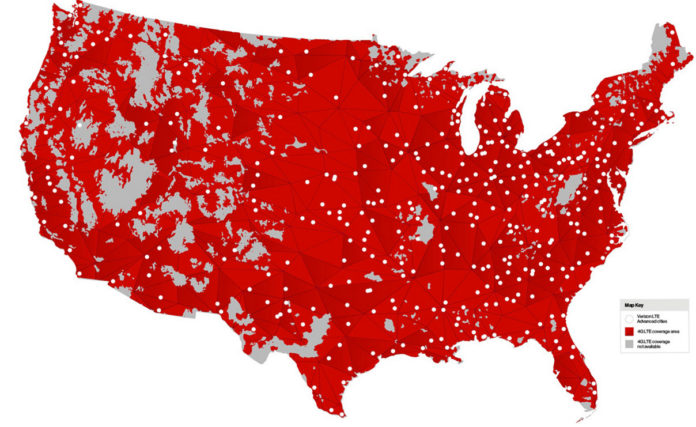
PROVIDENCE – Verizon this week said that more than 288 million mobile users in 461 cities around the country received faster peak wireless data speeds at no extra cost through its new LTE Advanced technology.
The wireless provider, which made the announcement on Aug. 29, said the technology will bring 50 percent faster peak speeds to all major cities, including the Providence-Warwick-Fall River metropolitan area, and also reaches highways and spots in rural America.
“Our customers just received a major network enhancement for no additional cost,” Tami Erwin, head of operations for Verizon’s wireless unit, said in a statement. “Verizon LTE Advanced works like a turbocharger on an engine. Speed boosts kick in when you need it most, with big data use.”
According to the company, it previously would take up to an hour or more to download a full-length HD movie on a phone. Now, Verizon said, users can download that same movie 50 percent faster with any of the 39 LTE Advanced-capable phones and tablets already on the network, including Samsung Galaxy S6 and S7 smartphones and Apple iPhones. Verizon said any new devices from Apple, Samsung, LG and other manufacturers that are introduced will be LTE Advanced-capable.
Nicki Palmer, Verizon’s chief wireless network engineer, said the technology means that a data session moves more quickly over the best network.
The company, in a news release, explained that it uses “carrier aggregation” technology to combine two or three bandwidth channels into one larger channel to send data sessions over the most efficient route to completion.
LTE Advanced uses a combination of two- and three-carrier aggregation. Customers will continue to see typical download speeds of 5-12 Mbps, but two-channel carrier aggregation has shown peak download speeds of up to 225 Mbps. Verizon engineers using three-channel carrier aggregation have experienced speeds greater than 300 Mbps.
Verizon previously has said it has invested more than $70 million over the last three years in the state of Rhode Island.
During that same time frame, 2013-2015, AT&T said it invested approximately $40 million in its Rhode Island wireless and wired networks. AT&T said the investments covered upgrades to reliability, coverage, speed and performance for residents and businesses. New cell sites and additional network capacity were added, AT&T said.
Patricia Jacobs, president, AT&T New England, said the company wants customers to be able to access the Internet “at any moment, from almost any device and anywhere.”
Full Channel Inc., a communications provider covering Barrington, Warren and Bristol, does not disclose budgetary numbers, according to Levi C. Maaia, company president, but he said Full Channel is on the industry-standard DOCSIS, or Data Over Cable Service Interface Specification, road map to gigabit internet over hybrid fiber-coax networks.
“Presently Full Channel is offering internet speeds of up to 110 megabits per second to both homes and businesses. We expect to substantially increase this top-end offering in the coming months as network upgrades continue as planned,” Maaia wrote in an email.











